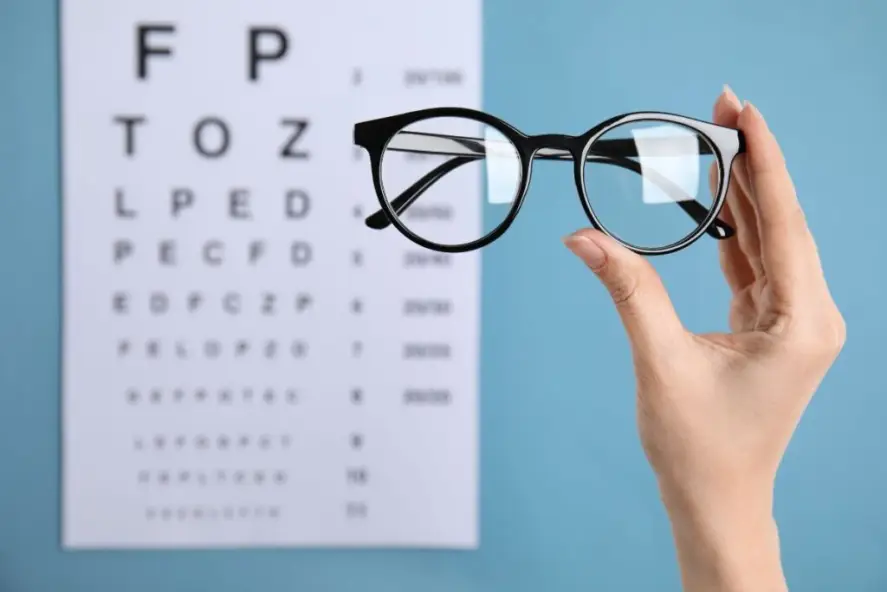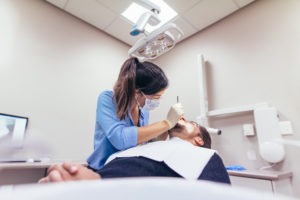The Texas Optometry Board (the Board) licenses and regulates optometrists in Texas. If you are one of these professionals and a patient files a complaint against you, the Board also handles the complaint and any disciplinary proceedings. Any licensed optometrists who are facing disciplinary complaints should consult an optometry license defense attorney for help.
When the Texas Optometry Board Receives a Complaint
As part of its regulatory duties, the Board receives, processes, and investigates complaints against Texas optometrists. As a result, Tex. Admin. Code §277.1 permits anyone to file a complaint against optometrists in person at its offices or by mail using its standardized complaint form.
Processing of Complaints
The Executive Director of the Board, working in conjunction the Investigation-Enforcement Committee, will first determine whether it has jurisdiction over the complaint, or the legal authority to act. In other words, the Board will decide whether the complaint concerns a licensed optometrist whom it regulates and whether the allegations concern a potential violation of the rules or laws that apply to licensed optometrists. For instance, the Board has no jurisdiction to handle complaints over whether an optometrist was allegedly rude to a patient or over a fee dispute between an optometrist and patient, because those issues do not fall within a law or rule that governs optometrists.
The Board will place the complaint into one of the following categories:
- Non-jurisdictional, in which case the Board will refer the complaint to the appropriate agency that has jurisdiction over the complaint;
- Jurisdictional, which requires the expertise of a licensee board member; or
- Jurisdictional, which do not require the expertise of a licensee board member
The Board then prioritizes jurisdictional complaints based on their severity:
- Complaints of high-priority (evaluated for emergency temporary suspension) include, but are not limited to:
- Violations of the professional standard of care
- Professional misconduct;
- Qualifications of applicants or licensees;
- Unauthorized practice; or
- Other acts or the failure to act that potentially threatens the public health.
- Complaints of normal-priority include, but are not limited to:
- Advertising violations;
- Violations of the Texas Optometry Act (“Act”) or Board Rules (“Rules”) resulting in economic harm; or
- Violations of the Act regarding notice that do not potentially threaten the public health.
Investigation of Complaints
If the Board can investigate a complaint, it sends a copy of the complaint to the optometrist for a response. Once the doctor sends a response, the investigator and the Investigation-Enforcement Committee decide whether additional investigation is required. Upon completion of the investigation, the Board decides whether the optometrist has violated any rules or laws. If no violation has occurred, the Board will close the investigation and notify the complaining party.
Board Action Upon Finding a Violation
If the Board finds that an optometrist has violated an application rule or law following an investigation, it has several options, including the following:
- Issuing a letter of noncompliance to the optometrist;
- Issuing a formal reprimand to the optometrist;
- Holding an investigational hearing; or
- Referring the matter for formal hearing.
Depending on the severity of the violation, the Board then can take various actions to resolve the alleged violation, such as:
- Issuing a cease and desist order to the optometrist;
- Proposing a remedial plan;
- Entering into an agreed order;
- Assessing administrative penalties;
- Instituting disciplinary proceedings; or
- Determining that someone is practicing optometry without a license or violating the Act and notifying the attorney general or district attorney.
Disciplinary Proceedings Before the Board
Informal Settlement Conferences
Tex. Occ. Code §351.507 provides for informal settlement conferences concerning complaints made to the Board. At these conferences, both the optometrist and the complaining party can be heard before a panel of at least three board members, including at least one board member who represents the public. The parties may reach an agreement on a remedial plan or order that contains any number of provisions, including requiring the optometrist to refund fees to a patient, assessment of an administrative penalty, and more. If the parties cannot reach an agreement, then the panel can recommend that the case be referred for a contested hearing.
Contested Administrative Hearings
The State Office of Administrative Hearings (SOAH) oversees all contested disciplinary hearings from the Board. SOAH will assign an Administrative Law Judge (ALJ) to hear the case. The ALJ will hold an administrative hearing after service of notice and completion of discovery requests. Both sides will have a chance to present their sides of the story. The ALJ will hear the case and recommend a disposition of the complaint to the Board.
Potential Sanctions
Potential sanctions in a disciplinary case can range from revocation or suspension of an optometry license to a reprimand. Other sanctions may include placement on probation, assessment of an administrative penalty, or imposition of certain conditions on an optometrist’s practice.
In considering the amount of the administrative penalty that is appropriate, either instead of or in addition to other sanctions, the Board will consider the following:
- the seriousness of the violation, including the nature, circumstances, extent, and gravity of any prohibited acts, and the hazard or potential hazard created to the health, safety, or economic welfare of the public;
- the economic harm to property or the environment caused by the violation;
- the history of previous violations;
- the amount necessary to deter a future violation;
- efforts to correct the violation; and
- any other matter that justice may require.
Each day a violation continues is a separate penalty, so penalties can increase quickly. However, the amount of administrative penalty may not exceed $2,500 per violation under Tex. Occ. Code §351.552.
We Are Here to Help You Fight Back and Protect Your License
The optometry license defense lawyers of Bertolino LLP, can help you navigate the complaint process and gather the evidence you need to defend your license. In addition, we can fight back against misconduct allegations and work to clear your name. Call us today at (512) 515-9518 to reach the offices of Bertolino LLP, or contact us online.
Call or text (512) 476-5757 or complete a Case Evaluation form





